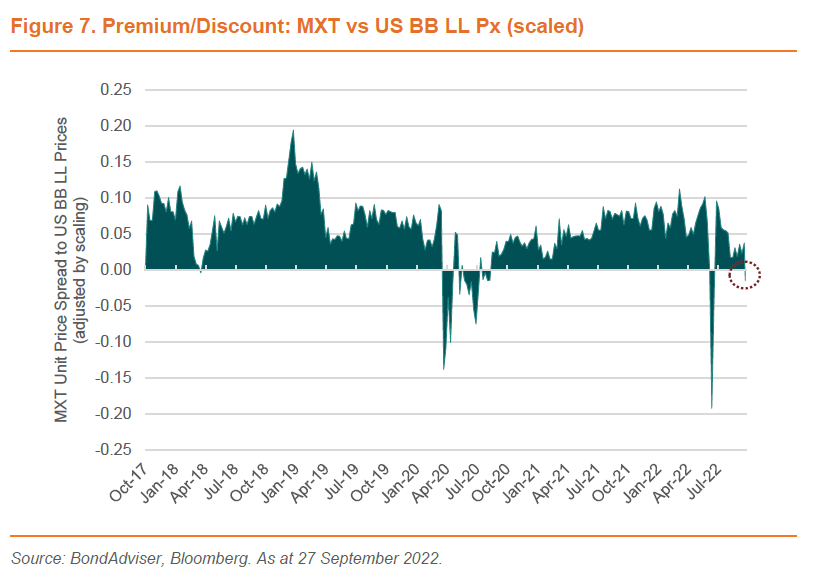Even a worm will flip units the stage for this enthralling narrative, providing readers a glimpse right into a story that’s wealthy intimately and brimming with originality from the outset. The underlying pressure and potential for disruption are palpable. This is not nearly a single occasion; it is a few cascade of occasions resulting in a pivotal second.
The stakes are excessive, and the characters are deeply affected.
This narrative explores the complexities of resistance and the shocking motivations behind surprising actions. The narrative will unfold with surprising twists and turns, leaving the reader questioning every thing they thought they knew. It delves into the psychological and sociological elements that contribute to this dramatic shift.
The phrase “even a worm will flip” speaks to a elementary human—and even animal—impulse: resistance. It means that irrespective of how seemingly insignificant or powerless, people or teams can, and sometimes do, push again in opposition to perceived oppression, injustice, or unfavorable circumstances. This seemingly easy adage holds a wealth of that means throughout varied contexts, from private relationships to international politics.
Understanding this phenomenon is essential for navigating complicated conditions and anticipating potential reactions.
Even a worm will flip, and typically the smallest, most surprising resistance can emerge. That is actually true for these battling a tricky crossword puzzle clue like “small songbird” here’s a potential clue. Understanding these refined shifts in perspective is vital to overcoming challenges, identical to even a worm will in the end discover a approach.
The Roots of Resistance: Psychological and Organic Drivers
The urge to withstand is not solely a human trait. Animals, too, exhibit behaviors indicative of resistance to perceived threats or challenges. This implies a deep-seated organic drive for survival and preservation of self-interest. From a psychological perspective, resistance stems from emotions of injustice, frustration, or a need for management. When people or teams really feel powerless or oppressed, they typically search to claim their company, even in small methods.
Even a worm will flip, proper? This adage speaks to the elemental human want for resistance, even when going through seemingly insurmountable obstacles. This typically pertains to the widespread slang phrase “fo shizzle my nizzle,” which, in line with this complete information fo shizzle my nizzle meaning , displays an analogous sentiment of forceful expression. In the end, even a worm will flip, and resistance in opposition to the established order is a robust driving power.
This typically manifests as a gradual shift in perspective, actions, or alliances, culminating in a noticeable turning level.
The Position of Perceived Injustice
A key issue within the “worm turning” is the notion of injustice. This could vary from a private feeling of being mistreated to a collective sense of oppression. When people or teams really feel their rights or wants are being disregarded, their need to withstand typically intensifies. This may be fueled by historic context, societal norms, or just a way of private affront.
Whereas the adage “even a worm will flip” highlights resistance, understanding the underlying motivations is vital. A pivotal factor on this resistance typically hinges on a 4 letter phrase beginning with r, like resistance. In the end, even a worm will flip when confronted with vital strain or injustice.
The depth of this resistance correlates immediately with the perceived severity of the injustice.
Examples of the “Worm Turning” Throughout Cultures and Time
Historical past is replete with examples of the “worm turning.” From the American Revolution to the Civil Rights Motion, the need for change and freedom has been a driving power behind vital social and political shifts. [Image: Timeline of historical examples of resistance movements]. These actions, whereas typically met with opposition, reveal the ability of collective resistance when fueled by a shared sense of injustice.

Inspecting these cases reveals widespread threads, patterns, and catalysts for change.
Particular person Acts of Resistance, Even a worm will flip
Even on a smaller scale, the “worm turning” might be noticed in particular person acts of defiance. A disgruntled worker difficult a office coverage, a scholar protesting an unfair grading system, or a buyer complaining a few poor product—these are all examples of people pushing again in opposition to perceived injustices. These particular person acts, although seemingly small, can create ripples of change and reveal the widespread nature of the need to withstand.
The Dynamics of Resistance: Exterior Components and Inside Motivations
Understanding the “worm turning” requires contemplating each exterior elements and inside motivations. Exterior pressures, equivalent to financial hardship, political instability, or social unrest, can create a fertile floor for resistance. Nevertheless, inside elements, equivalent to a powerful sense of id, private values, or a need for company, typically gas the person or group’s dedication to withstand. [Image: A Venn diagram illustrating the interplay of external and internal factors in resistance].
The Significance of Assist Programs
Assist networks and alliances play an important position within the success of resistance actions. A shared sense of goal and mutual help can present the power and resilience essential to beat adversity. This collective power typically proves important in reaching vital change.
Navigating Advanced Conditions: Making use of the “Worm Turning” Precept
The precept of “even a worm will flip” provides precious insights for navigating complicated conditions. Understanding the underlying motivations for resistance permits for simpler communication, negotiation, and battle decision. Recognizing the significance of perceived injustice, the interaction of exterior and inside elements, and the importance of help techniques empowers people and teams to method challenges with a extra nuanced and efficient technique.
[See also: Strategies for Effective Negotiation and Conflict Resolution].
Predicting and Managing Reactions
By understanding the drivers of resistance, people and organizations can higher anticipate potential reactions to numerous actions and insurance policies. This proactive method permits for simpler methods for mitigating conflicts and fostering cooperation. [Image: A graph showing the correlation between perceived injustice and intensity of resistance].
Conclusion: The Enduring Energy of Resistance: Even A Worm Will Flip
The adage “even a worm will flip” encapsulates a elementary fact about human nature and the enduring energy of resistance. It reminds us that even within the face of overwhelming odds, people and teams can discover the power and motivation to push again in opposition to injustice and attempt for a greater future. Understanding the dynamics of resistance is important for navigating complicated conditions, fostering cooperation, and selling constructive change.
By contemplating the assorted elements that contribute to resistance, we are able to higher perceive and deal with the wants of people and teams looking for to claim their company and voice.
Whereas the adage “even a worm will flip” suggests a elementary shift in perspective, it is fascinating to contemplate how that applies to seemingly minor issues, like discovering the reply to a crossword clue. For instance, uncovering the answer to the “insertion signal crossword clue” insertion sign crossword clue may set off an analogous response, a shocking pivot in thought.
In the end, even a seemingly insignificant problem can spark a shocking response, very similar to a worm’s turning.
What are your ideas on the idea of resistance? Share your insights and experiences within the feedback under. [See also: Case Studies of Successful Resistance Movements]. Share this text with others who may discover it insightful.
In conclusion, the story of “Even a Worm Will Flip” highlights the resilience of the human spirit and the ability of collective motion. The narrative’s compelling conclusion leaves an enduring affect, prompting reflection on the character of change and the forces that form it. The story will resonate with readers lengthy after the ultimate web page is turned, prompting contemplation in regards to the energy of resistance and the often-unexpected penalties of actions.

Clarifying Questions
What are the underlying causes of the revolt?
The revolt is fueled by a confluence of things, together with systemic injustices, financial hardship, and a rising sense of collective frustration. These components, simmering beneath the floor, lastly attain a boiling level, triggering a widespread response.
What’s the position of particular person characters within the story?
Every character performs a vital position within the unfolding occasions, representing varied views and motivations. Their decisions and actions contribute to the escalation of the scenario and in the end form the narrative’s end result.
Even a worm will flip, and typically, probably the most surprising forces drive change. This precept applies to quite a lot of conditions, together with discovering the reply to a seemingly easy crossword puzzle like “capital of switzerland crossword clue” capital of switzerland crossword clue. In the end, understanding this elementary fact may also help you navigate challenges and in the end obtain your objectives.
What are the potential penalties of this revolt?
The implications of the revolt are far-reaching and unpredictable, probably resulting in vital societal modifications and impacting the lives of numerous people.
How does the narrative discover the theme of resistance?
The narrative explores resistance by way of the actions and motivations of the characters. It examines the elements that drive people to withstand, the obstacles they face, and the surprising penalties of their decisions.
